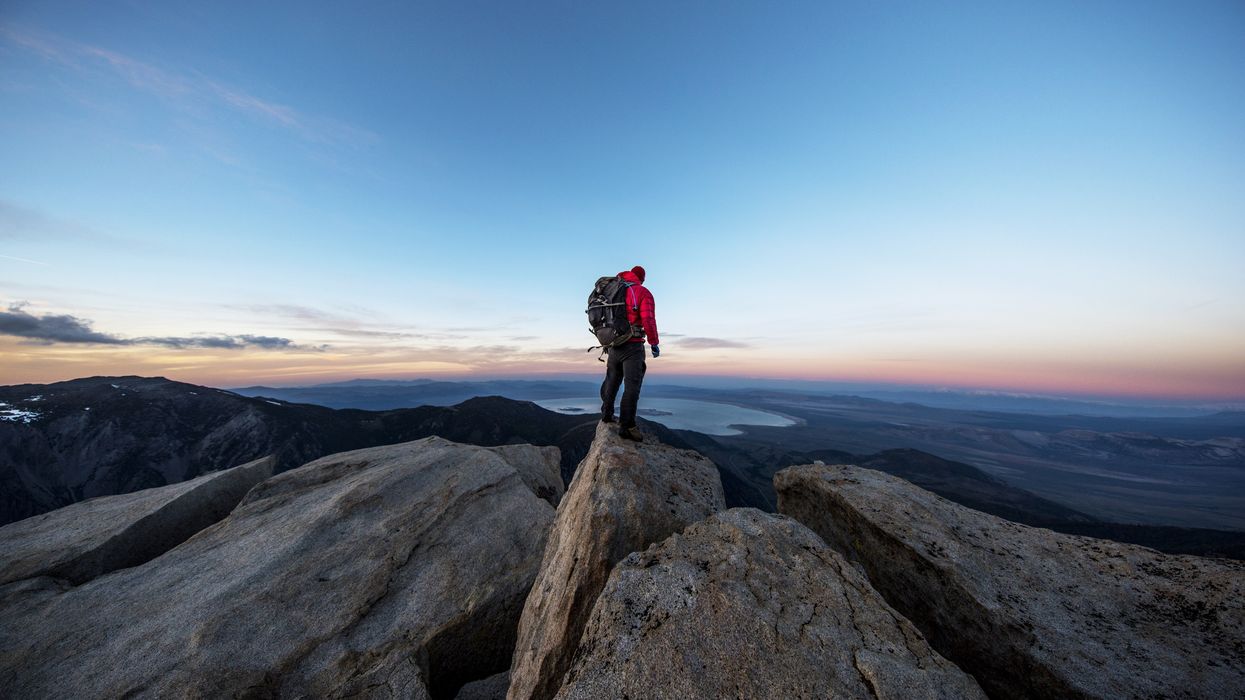Frazier is an assistant professor at the Crump College of Law at St. Thomas University. Starting this summer, he will serve as a Tarbell fellow.
"American democracy was born of no theorist's dream; it was not carried in the Susan Constant to Virginia, nor in the Mayflower to Plymouth. It came out of the American forest, and it gained new strength each time it touched a new frontier.” That’s the core idea behind the “Frontier Thesis” set forth by historian Frederick Jackson Turner way back in 1893. It’s an idea worth returning to 131 years later — a time when most would agree that our democracy could use a little extra strength.
Turner’s thesis turned on the idea that a frontier available to anyone and everyone with enough gumption had a number of benefits to our political culture. For one thing, he thought it fostered egalitarianism, fueled opposition to elitism and promoted a spirit of self-sufficiency and desire for self-governance. It’s true that the frontier Turner envisioned in 1893 was not as open nor inclusive as he may have imagined. One person’s frontier often turned out to be another person’s home. Still the “Frontier Thesis” is worth exploring given its intuitive appeal and the stagnancy that has come to define our economy, politics and communities.
First, the economic frontier has long been closed to Americans searching for financial floaties. It’s hard to set out for the frontier if you’re not able to put food on the table. Consider that between 1979 and 2019, productivity jumped by nearly 60 percent while compensation ticked up just 14 percent. In other words, a frontier of economic possibilities was opened by new technology and new processes — yet most Americans were left sitting by the window looking at the horizon.
Second, the political frontier has been claimed by a handful of officials who seem unwilling to step aside for the next generation of trailblazers. The average House member serves about five terms, or 10 years. How’s that for a frontier? Want to make a difference? Wait a decade then give it a go! Things are even worse on the Senate side, where the average member is in their seat for more than a decade. Worse yet, scholars have announced that we have a “frozen Constitution” given that it is seemingly impervious to amendment.
Third, the physical frontier has been blocked off for a variety of reasons. As of 2015, the average American lived just 18 miles from their mom. “Go West, young man” has become “Go to the next exit, son.” That’s not a frontier. That’s just sad. No offense, moms.
The American spirit has long been shaped by our collective willingness to explore, to dare, to push boundaries and, perhaps most importantly, to sacrifice in pursuit of that better, bolder, different future. Given that we’ve become economically trapped, politically powerless and physically stagnant it’s no surprise that spirit has been extinguished. Depressing? You bet. Irreversible? Heck no.
There’s no reason why we cannot dream up a new frontier. I’m not talking about space — Elon can have it. I’m talking about exploring within our own massive country. The average American has been to just 17 states -- that’s a small fraction of a gloriously diverse country. One way to upend that sorry stat is to create a national service program that deploys Americans — young and old alike — to wherever there’s a community in need. Boom — frontier created, horizon expanded, stagnation ended. Of course, it’s not that simple. Creating a national service program is no small feat … but that’s exactly the point!
A universal, mandatory and meaningful national service program would give us all an opportunity to visit new places, develop new skills and, most importantly, imagine a better individual and collective future. This program would include service in the armed forces as well as civilian forms of service and it would be ongoing, perhaps requiring some annual stint of service. Turner would be proud. Our democracy is made stronger when we all have a shared opportunity to better ourselves and our community.
How best to open our economic, political and physical frontiers is not an easy question, but it’s one that merits deliberation and debate. For now, let’s just agree that we’ve got to get moving — it’s the American way.











 A woman prepares to cast her vote on May 4, 2025 in Bucharest, Romania. The first round of voting begins in the re-run of Romania's presidential election after six months since the original ballot was cancelled due to evidence of Russian influence on the outcome. Then far-right candidate Calin Georgescu surged from less than 5% days before the vote to finish first on 23% despite declaring zero campaign spending. He was subsequently banned from standing in the re-rerun, replaced this time round by George Simion who claims to be a natural ally of Donald Trump.Getty Images, Andrei Pungovschi
A woman prepares to cast her vote on May 4, 2025 in Bucharest, Romania. The first round of voting begins in the re-run of Romania's presidential election after six months since the original ballot was cancelled due to evidence of Russian influence on the outcome. Then far-right candidate Calin Georgescu surged from less than 5% days before the vote to finish first on 23% despite declaring zero campaign spending. He was subsequently banned from standing in the re-rerun, replaced this time round by George Simion who claims to be a natural ally of Donald Trump.Getty Images, Andrei Pungovschi








Trump & Hegseth gave Mark Kelly a huge 2028 gift